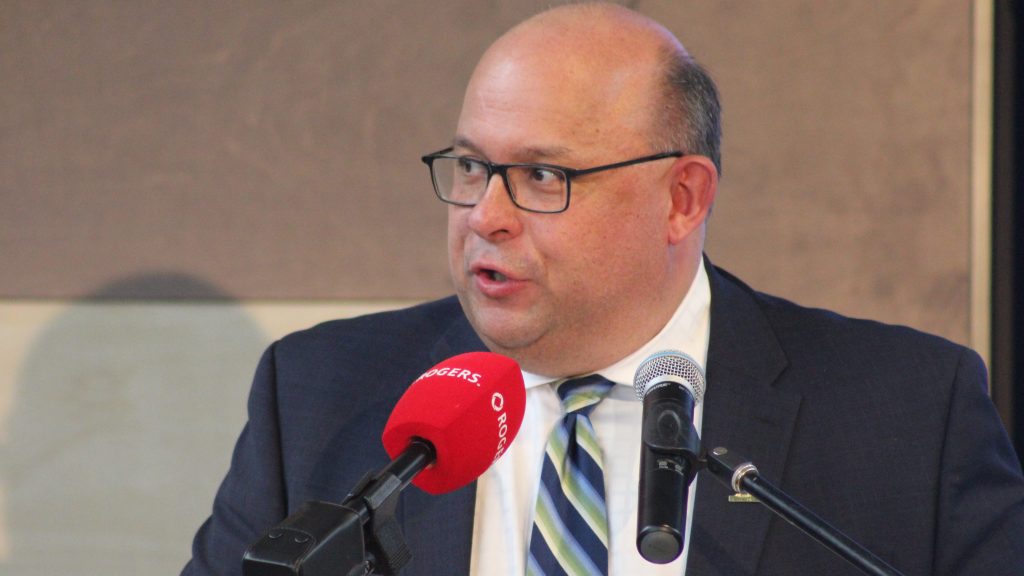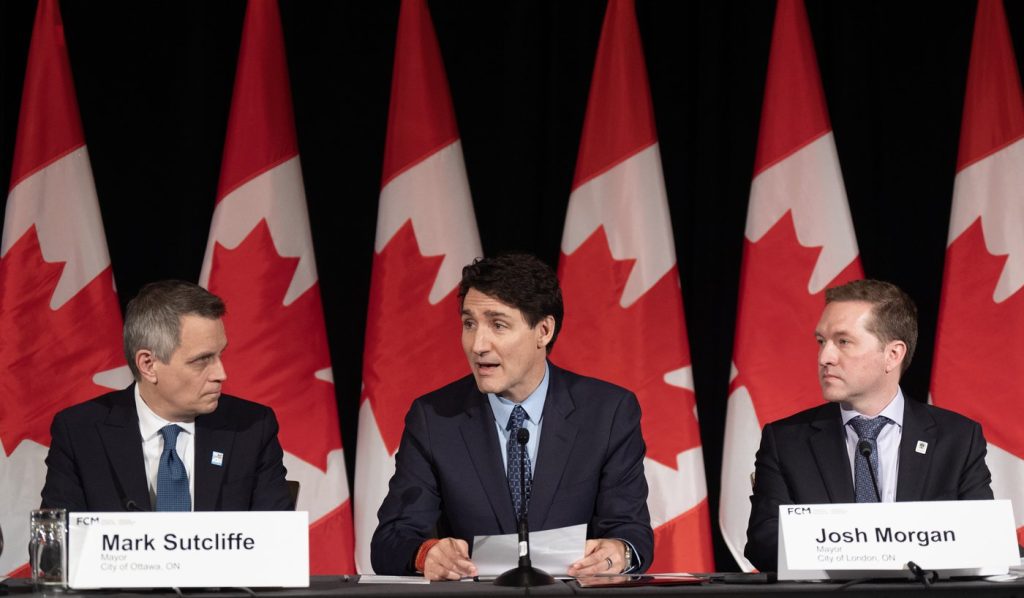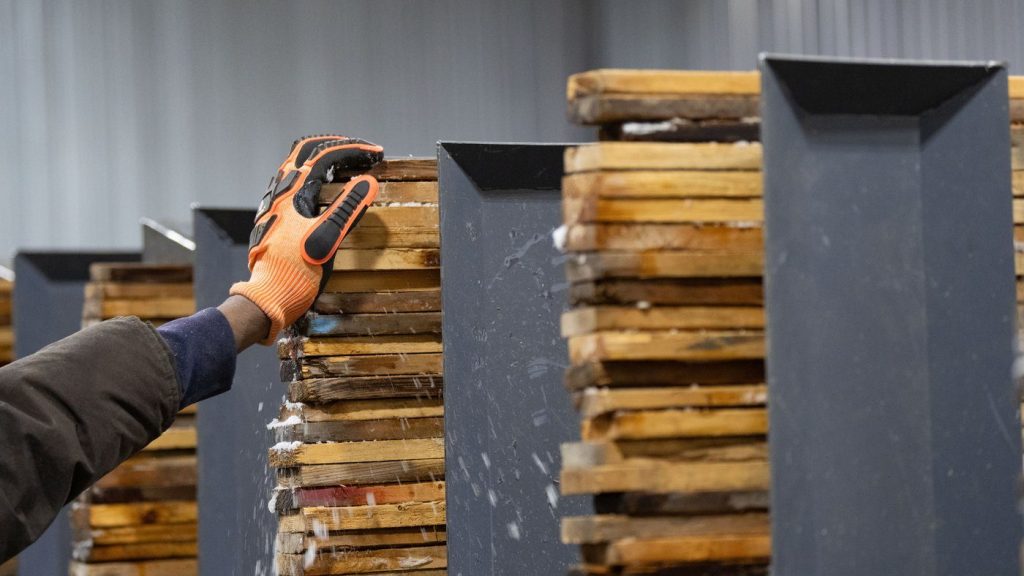Federal government hosts Canada-U.S. economic summit during tariff threat pause
Posted Feb 7, 2025 04:00:08 AM.
Last Updated Feb 7, 2025 10:18:12 AM.
Prime Minister Justin Trudeau welcomed hundreds of people Friday to a summit about bolstering the economy in the face of Canada’s rapidly changing relationship with its largest trading partner.
“I think we need to do two things in this. We need to both start thinking tactically and strategically,” Trudeau said.
Tactically, he said, Canadians need to be deliberate about how to work with the United States to avoid tariffs. But if the tariffs go ahead, he said, the country needs to be ready to respond and to support Canadians.
U.S. President Donald Trump’s plan to impose sweeping 25 per cent tariffs on Canadian goods, with a 10 per cent tariff on Canadian energy, has been put on hold until March 4.
Trump said in a social media post that the next month will determine “whether or not a final Economic deal with Canada can be structured.”
His administration also has ordered a study of the United States’ trading relationship with Canada, due by April 1.
The looming tariff threat and the volatility of the Trump administration have many business and labour leaders urging the federal government to look for other trading partners and ways to strengthen internal trade.
Trudeau said that’s part of the strategic thinking needed to make the economy resilient.
“It’s about time we have genuine free trade in Canada,” he said, adding that trade with the U.S. and the rest of the world is also essential.
The summit is being hosted by the government’s newly created advisory council on Canada-U.S. relations, and includes business and labour leaders, Indigenous leaders and public policy experts. Several federal cabinet ministers are also attending.
“We’d love to have hundreds of people on the council and that’s exactly what this morning is all about,” Trudeau said.
The summit is set to begin with a question-and-answer session with Trudeau and the advisory council before it moves into group discussions.
Flavio Volpe, a member of the advisory council and president of the Automotive Parts Manufacturers Association, said Thursday he hopes the summit is just the start of something bigger.
He said Canada is facing “the most serious industrial threat we’ve ever faced” and the moment calls for a collective effort similar to what happened in the early days of the COVID-19 pandemic.
“It’s important that this isn’t a photo op, that this isn’t a talking-to session, that this isn’t the only time we get together,” he said.
Speaking to reporters before the summit on Friday, Volpe said he’s encouraged by the fact that the group is “very cross-partisan.”
“It’s a very diverse group of leaders from different industries across the country that almost have nothing to do with each other, other than the currency that they trade in and the country that they live in,” he said.
Representatives from the Canadian Chamber of Commerce, the Global Automakers of Canada, the Federation of Canadian Municipalities and Canadian Manufacturing and Exporters are in attendance, as is National Chief of the Assembly of First Nations Cindy Woodhouse Nepinak.
Drew Dilkins, the mayor of Windsor, Ont., said this kind of meeting can help ensure different levels of government and the private sector are “rowing in the same direction.”
“Aligning on the facts is really important because what’s missing in this whole conversation, at least from my perspective on the U.S. side, is fact,” he said.
He and other border community mayors established the Border Mayors Alliance to advocate on behalf of the cities that have the most to lose from U.S. tariffs. He said that kind of grassroots action only works if everyone understands the approach.
Dilkins took part in a meeting of the Federation of Canadian Municipalities’ Big City Mayors Caucus in Ottawa on Thursday, where tariffs and trade with the U.S. were the only topics.
Dennis Darby, president and CEO of Canadian Manufacturers and Exporters, said he intends to tell the government that if tariffs are imposed, businesses and workers will need help in the form of direct government relief, tax relief or wage subsidies.
Beyond that, he said, there are “structural problems within the Canadian economy that need to be addressed.”
They include the need to make it easier to move goods between provinces — trade that is undermined by a complicated regulatory environment — and to ensure Canada takes better advantage of its trade deals with other countries.
This report by The Canadian Press was first published Feb. 7, 2025.
Sarah Ritchie and Sammy Hudes, The Canadian Press
<!– Photo: 9ac5d20b9d2f878a9af31f896beb0368c7282ef7dba5f6d782f05e8e1fb801cc.jpg, Caption:
Ottawa Mayor Mark Sutcliffe, left, and London Mayor Josh Morgan, right, look on as Prime Minister Justin Trudeau speaks to the Federation of Canadian Municipalities’ Big City Mayors Caucus meeting, Thursday, Feb. 6, 2025 in Ottawa. THE CANADIAN PRESS/Adrian Wyld
–>








